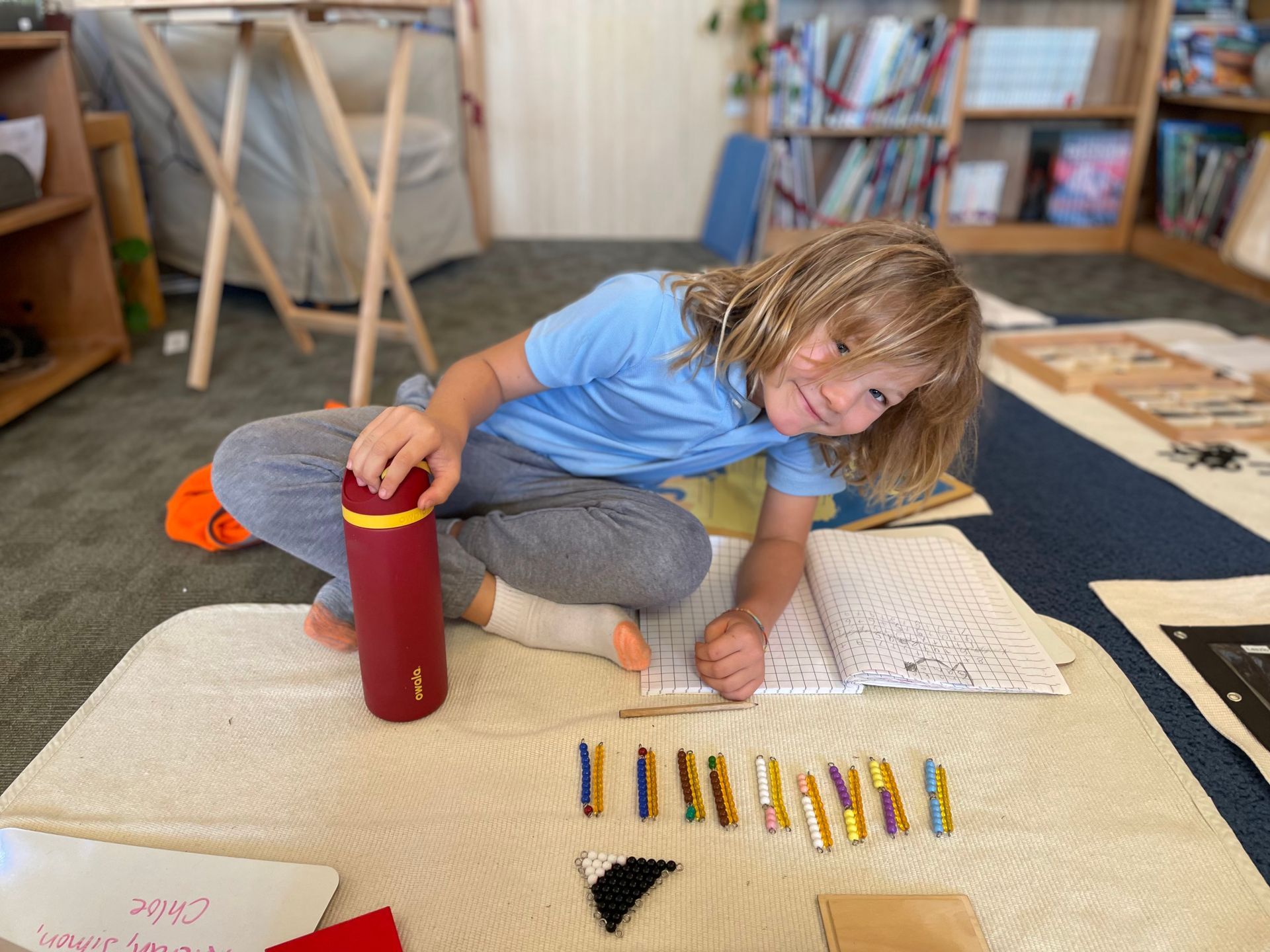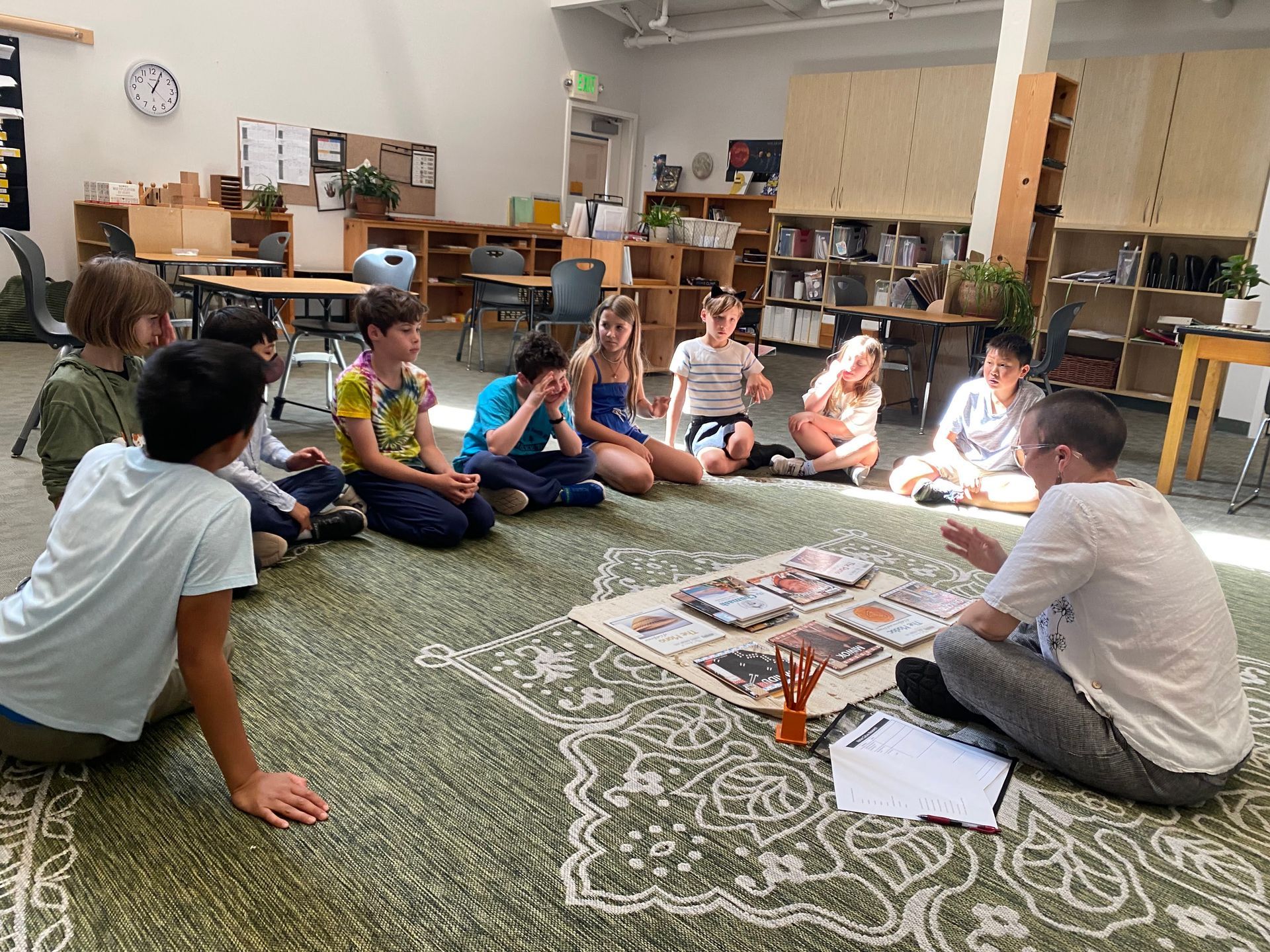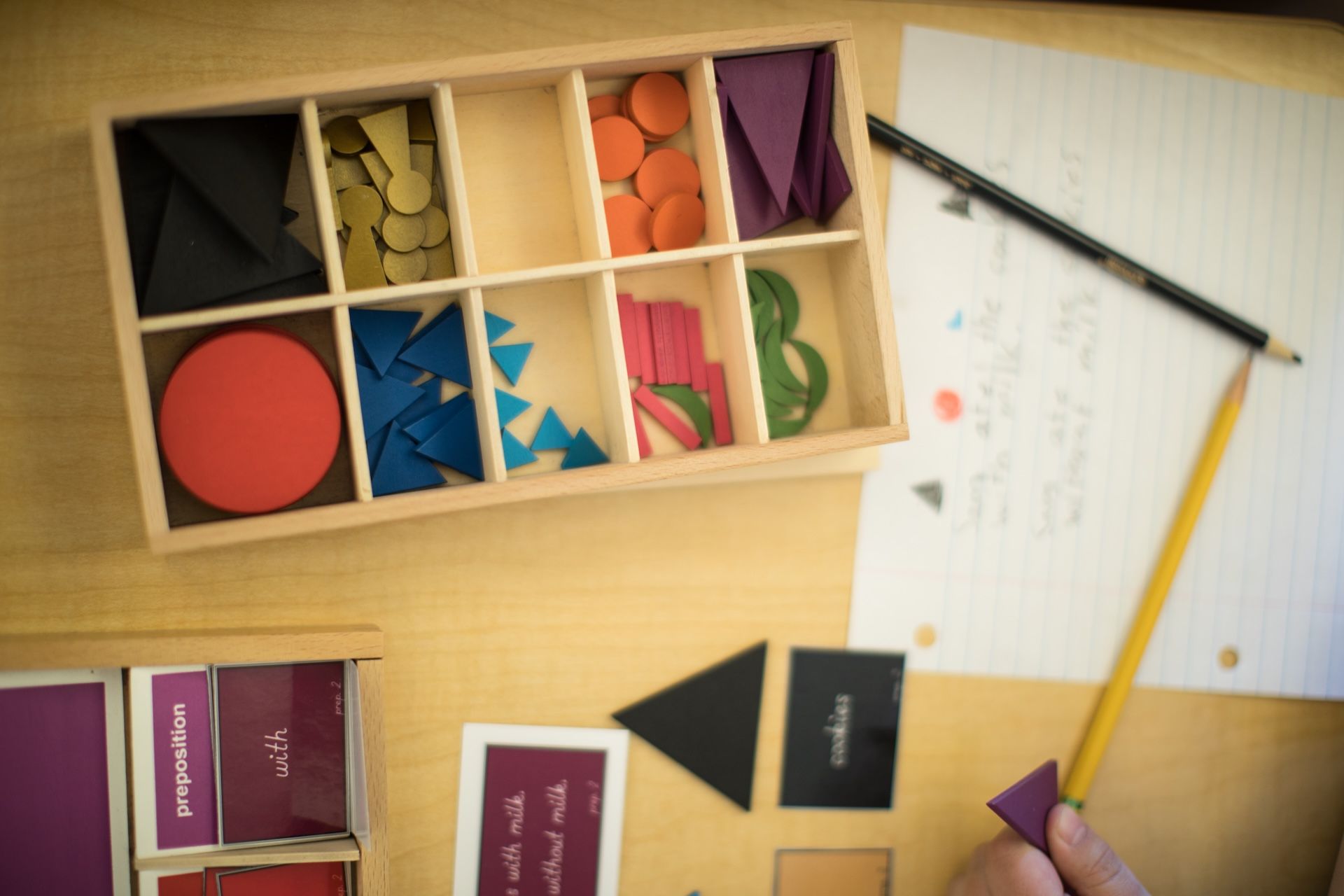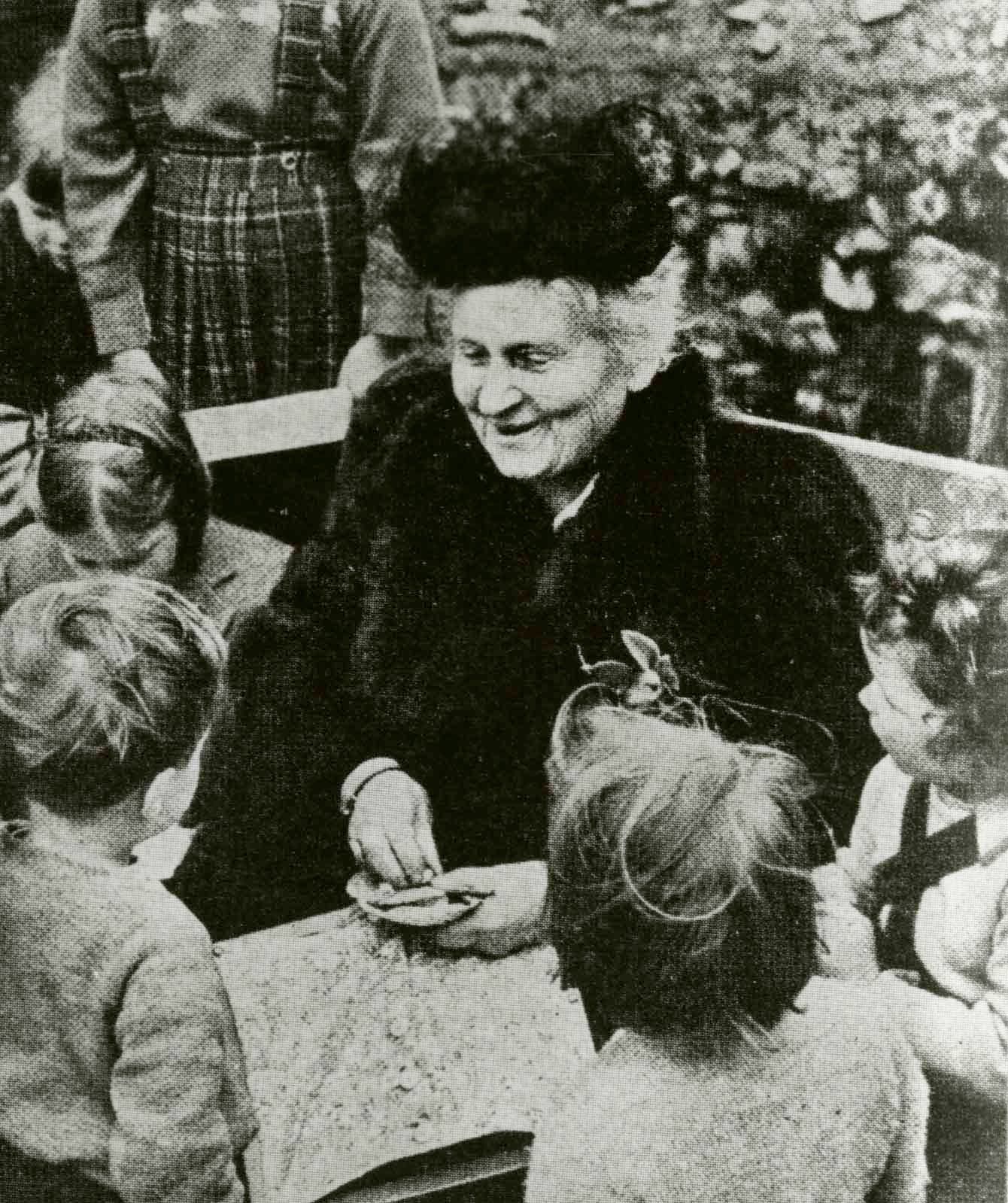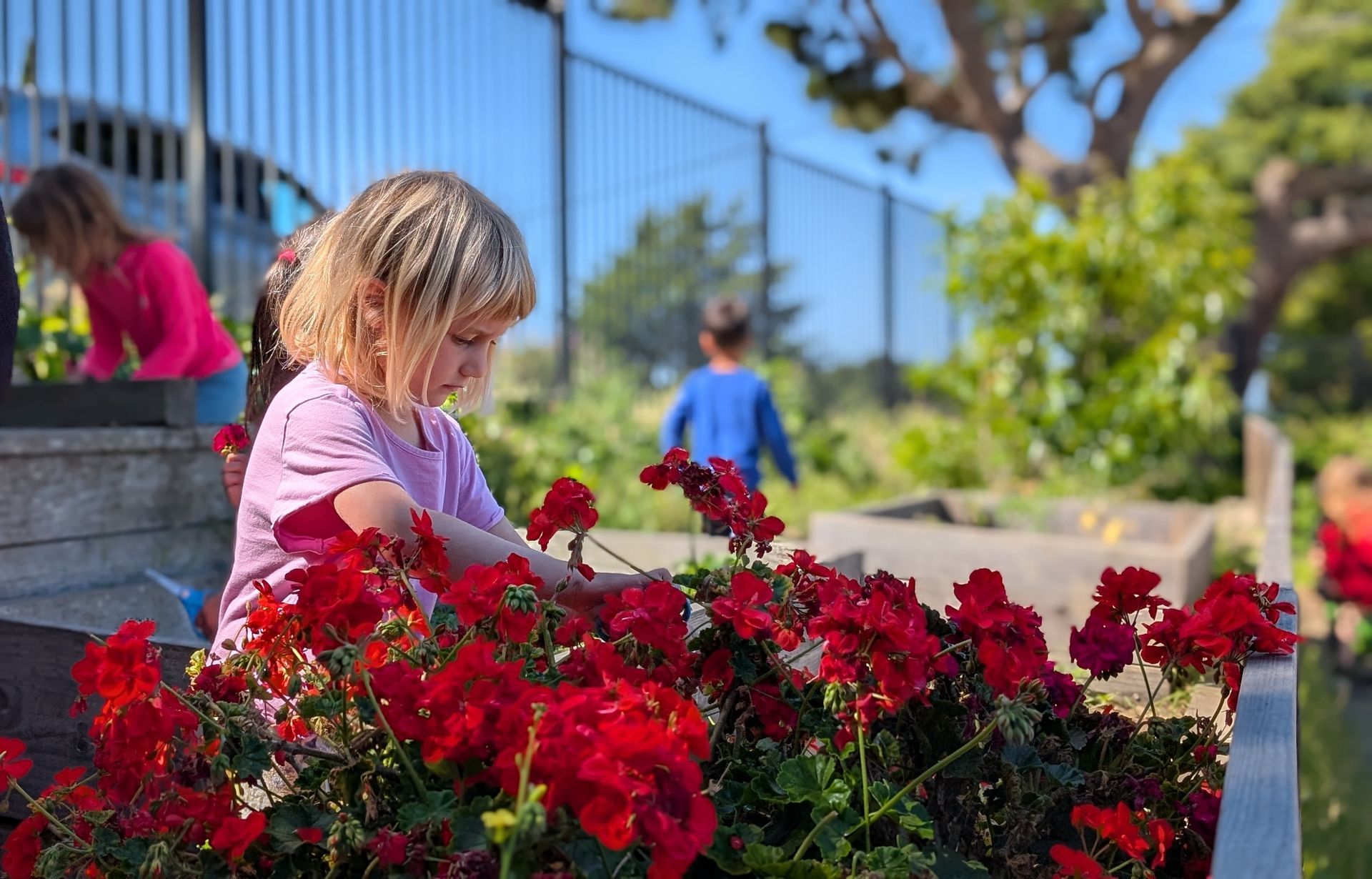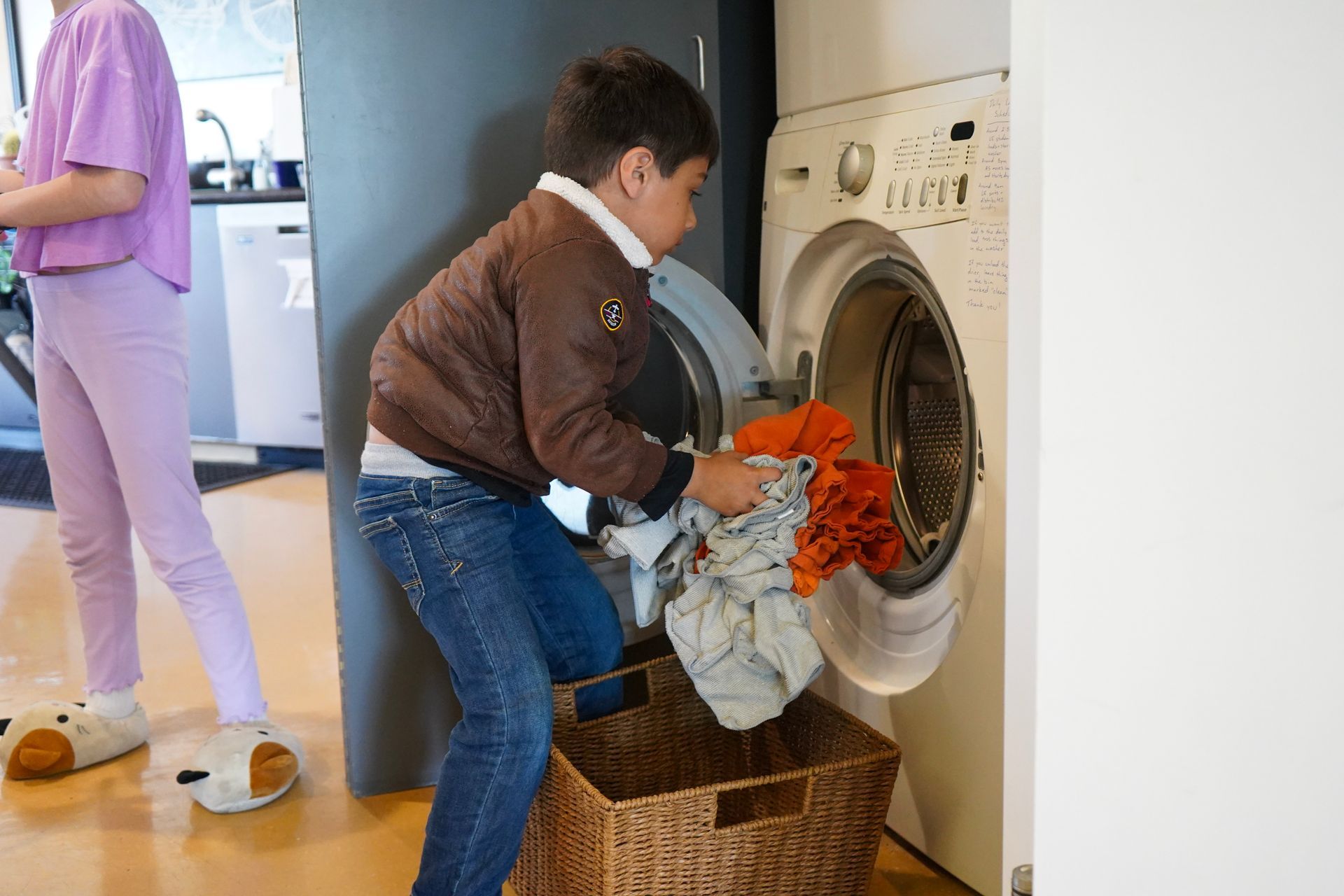Easing the Transition: A Guide to Starting the School Year
Help your child transition smoothly back into the school year with Montessori-inspired tips for calm mornings, confidence, and connection
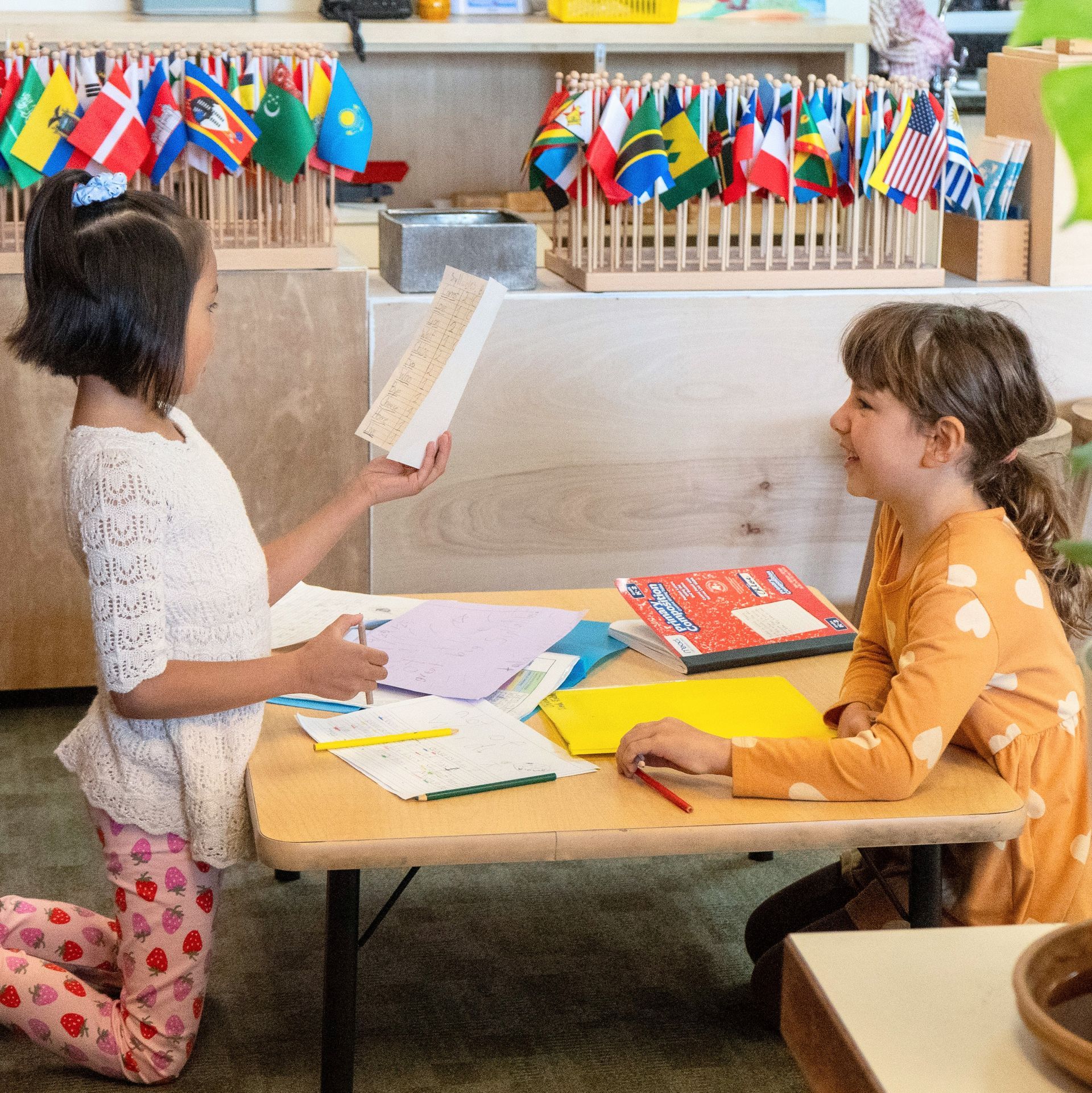
As summer winds down and the school year approaches, our children often experience a mix of emotions from excitement and curiosity to worry and anxiety. Whether your child is returning to familiar routines or stepping into something entirely new, transitions can be challenging for both children and parents.
With a little forethought and gentle structure, the shift from summer to school can become an opportunity for growth, connection, and calm. The Montessori philosophy reminds us that preparing the environment is key, and that includes preparing our home routines, emotional landscape, and mindset for the change ahead.
Reestablishing Routines
Sleep Schedules
The shift from late summer nights to early school mornings is often the trickiest. Rather than expecting a sudden adjustment on the first day, we recommend starting 2 weeks in advance. Gradually move bedtimes and wake-up times earlier in 15-minute increments. The goal is for your child to wake feeling rested and ready when the school year begins.
Morning Routines
A consistent and peaceful morning routine can transform the start of the day for the entire family. With a few subtle adjustments, we can also encourage our children to participate in preparing for the day ahead. For example, offer two outfit options for younger children, or encourage older children to choose and lay out their clothes the night before. A visual checklist with steps like getting dressed, eating breakfast, brushing teeth, and packing up can help alleviate the pressure. For added fun and independence, laminate the visual guide and let your child check off each task with a dry-erase marker. Ultimately, it helps practice the morning routine together before school starts, so it feels familiar and low-pressure.
Preparing Lunches and Snacks
Involving children in packing their own lunch fosters independence and gives them a sense of responsibility. Set up a small shelf or refrigerator section with healthy, ready-to-grab options. With a little support, even very young children can help pack their snacks and lunches the night before or as part of the morning routine.
Creating Calm and Order at Home
Designating a special area for school items helps build a sense of order and capability. Low hooks for backpacks, a bin for shoes, and a tidy shelf for lunch bags or outerwear give your child the tools they need to manage their belongings independently.
You can even “practice” coming home before the first day of school. Having your child hang up their backpack, unpack their lunch, and put things away helps establish habits that will carry through the year.
Supporting Emotions
It’s completely normal for children (and us!) to feel a mix of emotions about returning to school, especially when starting somewhere new. The key is to remain open, curious, and validating.
Encourage open conversations about feelings that might be arising. Instead of trying to fix discomfort, try reflective listening: “It sounds like you’re feeling a little nervous about meeting new friends.” We can also model a positive mindset by highlighting joyful aspects of school, such as reconnecting with friends, engaging in favorite activities, or exploring something new.
Another approach is to create rituals to mark the transition, such as an end-of-summer breakfast, a special note tucked into a lunchbox, or a celebration to mark the start of the school year.
Cultivating Connection
Transitions are smoother when children feel supported and connected to their community. If possible, visit the school before the first day, especially if your child is starting something new. At East Bay Montessori, we have the classrooms open the Friday before school starts for this exact reason. Our Parents' Association also hosts an all-school picnic the Sunday before school begins as a great way to meet new faces. Coordinating playdates or meetups with classmates can help build or rebuild social bonds.
Maintaining Wellness and Balance
We do better when we feel better. To help children sustain their energy for the school day, focus on nutritious meals, especially a healthy breakfast that will fuel concentration and energy. To support a healthy balance between screen time, movement, and rest, work with your child to establish technology boundaries and screen limits before the school year starts. This helps children adjust ahead of time to different (and hopefully healthier) habits.
Encouraging Independence and Collaboration
Back-to-school doesn’t have to be something adults “do to” children. When we invite children into the process with genuine collaboration, they begin to feel more in control and more confident. From setting up routines, to preparing meals, to expressing their feelings, children are capable of contributing meaningfully to the process.
The result? A smoother transition, a greater sense of peace, and children who feel ready to step confidently into the school year ahead.
East Bay Montessori looks forward to welcoming our students back to school on August 25th!





